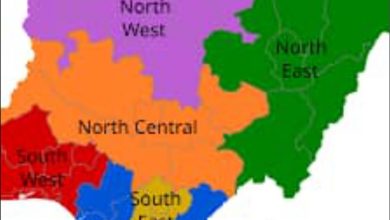Random Location Of Cooking Gas Sales Outlets In Akwa Ibom: A Looming Danger
By Substance Nature

The Saturday, January 4, 2020 gas explosion in Sabon Tasha, a business premises located along the Kacha Road in Chikun Local Government Area of Kaduna State, could not have occurred at a worse time of the year. Authoritative reports euphemistically made reference to “great loss of lives and property” from the incident that “shattered or burnt down many buildings in the residential area”.
Perhaps most touching and instructive was the report that the Chairman of Nigeria Atomic Energy Commission, one Professor Simon Mallam, who with his grandson were in a nearby Barber’s salon when the explosion occurred, were feared dead. What was the source of the gas explosion? According to eye-witnesses, it was as a result of gas leakages in a retail gas outlet situated in that busy area of high population density. For cogent reasons, let’s limit the ugly statistics of gas explosions from this particular and negligible source to the Kaduna State devastating Greek gift of the New Year.
It is possible for regulatory authorities and residents in the Capital City of Akwa Ibom State, and maybe elsewhere that the evil day has not yet struck, to easily undermine or dismiss daily news like this and attendant dangers of gas explosions in other parts of the country. But without any intention to sound pessimistic, without disregards to the platitudinous expletives of “God forbid” by religious zealots, the hovering and ominous prognosis is that Uyo residents are sailing too close to the wind.
In plainer terms, there is provident necessity to be worried about the wanton liberty with which business enthusiasts are creating cooking gas service outlets in the Uyo metropolis, bothering little or nothing in their awareness or ignorance about the inherent dangers. A close check around the Uyo Capital City has shown that practically all emerging gas service shops are situated dangerously too close to or sandwiched between residences, long unbroken line of shops, restaurants and petrol service stations. This developing and permissible scenario predisposes cataclysm; and it is apparent that many are careless about the potential risks the situation poses to life and property.
Whereas this situation would have been welcomed especially in view of the advantages of accessibility of the product to end users, the associated dangers far outweigh whatever shared benefits there ever may be in the occurrence of any explosion which, as far as gas is concerned, is just a matter of chance of the slightest carelessness. Conversely, it must be seen as highly jeopardous where gas stations are located without precaution in thickly populated areas. This is the simplest reckless way of courting disaster in the pretext of doing business.
The dangers become even more real when we consider that gas is the most furious of all substances of its nature. Of course, two of the strongest characteristics of gas are that it is airborne and highly inflammable. Gas is basically made up of combustible components like propane and bulane, which simply means that it takes less than a split second for it to explode and spiral over a distance. Beyond the logic of business comfort and profitability, known or unknown to the sellers, the Kaduna incident is a pointer that gas could leak into the hovering breeze without being detected.
Besides, medical experts agree that the odour from gas has extrinsic potentials to cause irritation in the nose and throat, vomiting, nausea, dizziness and loss of consciousness to some persons. To some, it can also be an unbearable source of allergy, thus posing serious health implications to those nearby. In extreme cases, because gas vapour is heavier than air, inhaling it at high concentration even for a short time can cause death, especially to the asthmatic and hypertensive.
It becomes even more worrisome where a gas service outlet, for any reason, shares the same roof with a bakery, auto-mechanic and welding workshops, or located inside a petrol service station. This is a common sight in Uyo. Ironically, those in charge of checking such anomalies patronise these points without the slightest inspiration that they should put up an alert. In certain instances, minors and indisposable nonentities who wouldn’t even be qualified to sell sachet water in decent societies are observed to be in charge of the sales, while the ogas are either in the office or cooling off somewhere. How casual we could be!
Again, it certainly leaves much to worry when women roasting corns are spotted directly in front or beside gas service shops, where breakaway tiny embers or cinders can easily cause an inferno of unimaginable cataclysmic proportion. Worst still, because it has become an all comers affair, findings have shown that many of these dealers have no remedial fire-fighting equipment or were trained to manage such emergencies. All they know is that it is their preferred line of business.
Maybe these ones needed to be updated that the Akwa Ibom command of the Nigeria Fire Service is now an asylum for the redundant and infirm who, not of their own fault but living reality of a national culture, have seen the ancient water cistern in their operational yards collapse and they now have to depend solely on sachet water, even when they share the same premises with a moribund water board. As part of the creative survival technique, one or two abandoned operational vehicles have been converted into a restaurant and security post.
According to a-2019 report by the Standard Organization of Nigeria (SON), there are about 13.8million households in Nigeria now using the Liquefied Petroleum Gas (LPG) domestically. Yet, there have been influx of fake and substandard cylinders in the market, whereby fake imported cylinders worth 38 million naira were reported to have been impounded by the establishment in August 2019 alone. This aggravates the situation because of the likelihood for fake cylinders to explode on their own without any external provocation.
Observers have pointed fingers at government offices whose responsibility it is to oversee, regulate and monitor the location and operation of this line of business, but who rather have resorted to the popular “tipping” or “palm-greasing” in conspiracy with defaulters. That is why where one sites a cooking gas outlet may not be as of importance as who you know in the office that oversees that aspect in town planning.
Otherwise, there is also the issue of ignorance or tacit complicity on the part of property owners who would let out their shops, particularly those attached to or that are part of main buildings, without inquiries into the kind of business that shall be done there. But those in the business of gas sales must be particularly blamed for deliberately undermining or feigning ignorance of the associated implications. Investigations have shown that there are no fewer than ten cooking gas service points between the Ibom Plaza and Itam junction, a distance of approximately I kilometre. And many more are springing up by the day under the watch of so-called capital city development and protection agents.
This situation therefore calls for holistic and pragmatic concern that should catapult into urgent action and strict measures from supervisory or regulatory agencies of government. This could be done through aggressive sensitization of dealers, property owners and general members of the public on the dangers involved in toying with highly inflammable raw gas in the name of doing business. Having jingles on radio, distribution of pamphlets and periodic interface with dealers on this matter must never be seen as waste of time and resources. Preliminarily, a definitive line must be drawn between suitability of business location and the dangers involved.
The frequent cases of explosion elsewhere in the country rising primarily from poor management of gas products should make this alert an urgent subject of critical public importance. The condonable attitude of “medicine after death” or taking frantic action only when a great damage had been done, can be avoided. A stitch in time saves nine!




